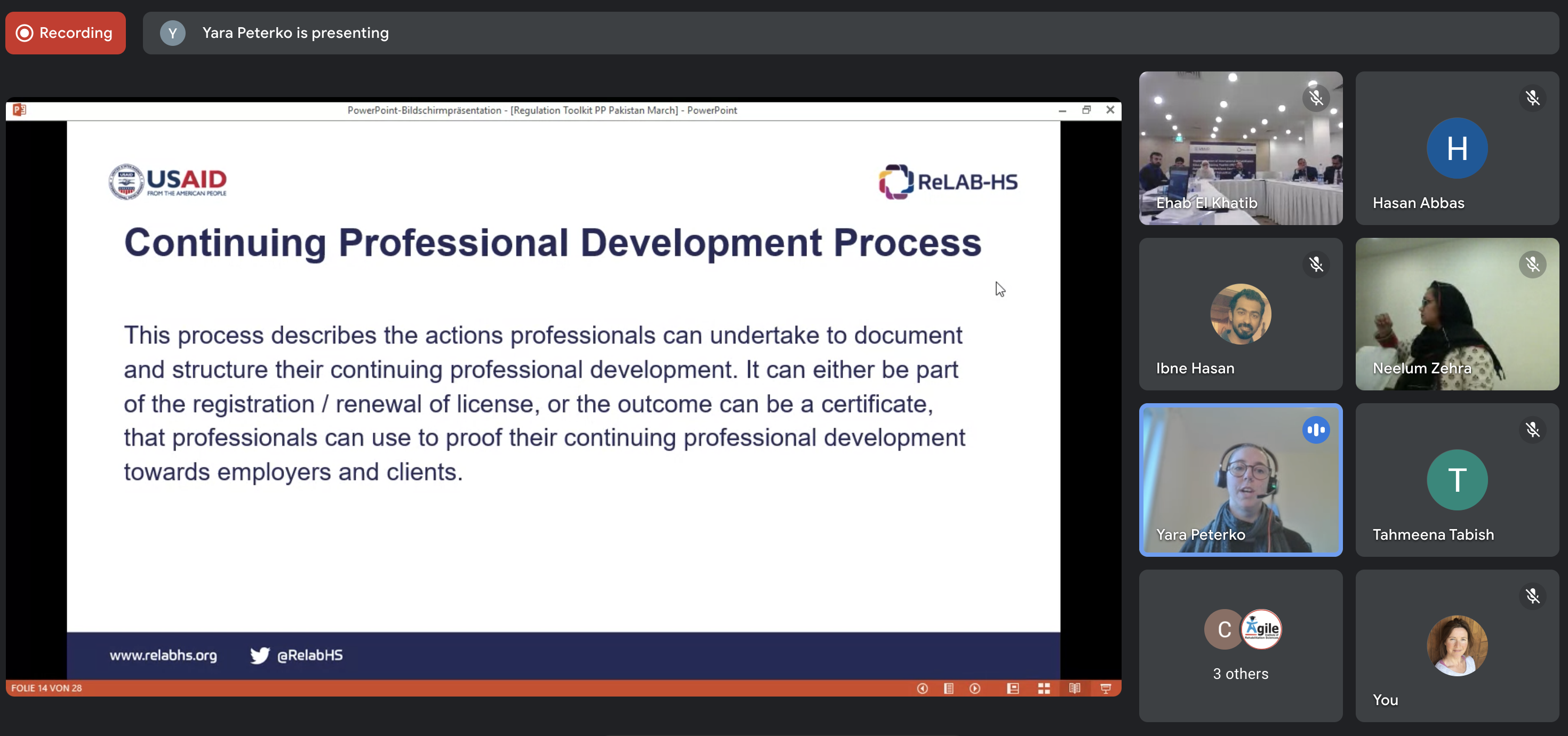Last month Physiopedia hosted a workshop in Islamabad, Pakistan, to promote collaboration among professional associations in strengthening the rehabilitation workforce both locally and nationally.
With attention on investing in rehabilitation services in Pakistan comes a need for both highly trained rehabilitation professionals and for strengthening professional regulation both locally and nationally.
As part of the USAID-funded ReLAB-HS activity, a workshop to discuss advancing professional regulation of rehabilitation professionals was recently held in Islamabad. There were 21 individuals participating, representing the national professional associations for Physiotherapy (PT), Occupational Therapy (OT), Speech and Language Therapy (SLT), Clinical Psychology and Prosthetics and Orthotics (P&O). The meeting was hosted by the ReLAB-HS Pakistan country team, including Neelum Zehra (OT), Ehab Elkhateeb (PT) and Waqar Qureshi, and included presentations from Rachael Lowe (PT) and Yara Peterko (OT) from the Physiopedia team. The objective of the meeting was to implement the International Rehabilitation Education and Training Toolkit (IRETT) Regulation Reflection Tool which can be used to support in identifying steps required for rehabilitation professional regulation. The Regulation Reflection Tool was designed by ReLAB-HS to assist parties interested in professional regulation to evaluate strengths and weaknesses and map out actions for developing local and national strategies.

At the conclusion of the meeting, among other actions, it was agreed that a single group representing all the rehabilitation professions would be useful to advance this work. With this in mind the group committed to forming a National Rehabilitation Alliance to strengthen the rehabilitation workforce both locally and nationally.
There is more work to be done, in prioritising areas for regulation and in developing the National Rehabilitation Alliance, which will continue over the coming months through a specifically created network for advancing rehabilitation in Pakistan on the Rehabilitation Community platform and with support from ReLAB-HS.
This work is supported by the USAID funded Learning Acting Building for Rehabilitation in Health Systems (ReLAB-HS) project and is not possible without the generous and committed contribution of the Leahy War Victims fund.
ReLAB-HS is made possible by the generous support of the American people through the United States Agency for International Development (USAID) and is implemented under cooperative agreement number 7200AA20CA00033. The consortium is managed by prime recipient, Johns Hopkins Bloomberg School of Public Health.

